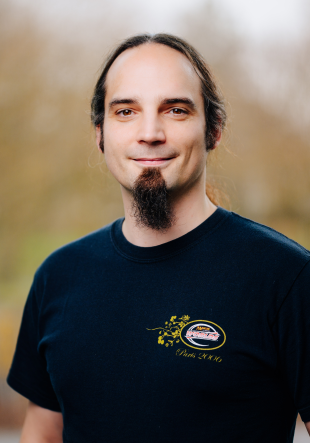Qurope: Quantum Repeaters using On-demand Photonic Entanglement
Overview
Quantum repeaters are important components for future applications such as quantum key distribution and quantum networks, enabling the transmission of quantum states over long distances. The primary objective of the EU-funded Qurope project is to develop hybrid quantum repeater architecture based on dissimilar quantum systems and test performances in real-word applications. Different memory systems based on vapour cells and rare-earth doped crystals will be combined with semiconductor quantum dots to develop near-infrared and telecom-based quantum repeaters. These systems will then be tested using both free-space and fibre-based quantum key distribution protocols based on entanglement. The project's results will pave the way for the future large-scale implementation of secure quantum communication.
Today’s society is based on the fast access to information. Getting a head start on information is key in business, finance, politics and security. Most of our information exchange is done via the internet. However, not only has the current structure of our internet limits in capacity but also data transfer is not secure. Therefore, we are in need to invest in a future network, capable of handling the massive data flow and allowing for secure data communication. Physics offers a solution to this difficult task in the so-called quantum internet. By using quantum mechanics, it is possible to encode information on the smallest quantum of energy, a single light particle called photon. Information encoded on single photons cannot be eavesdropped without the sender and original receiver noticing it. The basic concept relies on network nodes and special links, which are the quantum mechanical analogue to classical fiber amplifiers currently used to overcome transmission losses in standard network, to connect physically separated nodes with each other. However, the same quantum mechanical principle (non-cloning theorem) which makes the network totally secure also renders classical signal amplification impossible. Qurope develops quantum communication links taking advantage of another quantum mechanical effect to overcome transmission losses: Entanglement swapping using quantum repeaters. This allows transferring quantum information without physically sending a single information carrier the full distance to the receiver. Realizing such quantum repeaters requires quantum memories and entangled photon pair sources. The goal of Qurope is to develop a hybrid quantum repeater architecture based on dissimilar quantum systems and to test its performances in real-word applications. The envisioned implementation is based on two disruptive technologies that will be pioneered during the project: (i) Near-ideal quantum-dot-based sources of entangled photon pairs that will simultaneously feature high brightness, near-unity degree of entanglement and indistinguishability, wavelength-tuneability, and on-demand operation. (ii) Efficient and broad-band quantum memories that will be specifically designed and engineered to store and retrieve polarization-entangled photons from quantum dots. Different quantum dot-quantum memory systems will be combined to develop near-infrared and telecom-based quantum repeaters, which will then be tested using both free-space and fiber-based quantum key distribution protocols based on entanglement. This will be performed in the elementary quantum-network infrastructure available in the consortium – a major breakthrough that will open the path towards future large-scale implementation of secure quantum communication. The project combines semiconductor physics, nanofabrication technology, atomic physics, and quantum optics, and strongly benefits from the emerging synergy effects. This gives Qurope all required tools at hand to finally realize a functional hybrid quantum repeater between quantum network nodes, bringing us one big step closer to the quantum internet.
Key Facts
- Grant Number:
- 899814
- Research profile area:
- Optoelectronics and Photonics
- Project type:
- Research
- Project duration:
- 09/2020 - 08/2023
- Funded by:
- EU
- Websites:
-
Homepage
CORDIS
Von der EU geförderte Projekte

